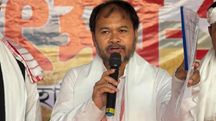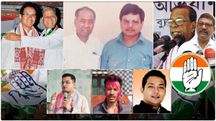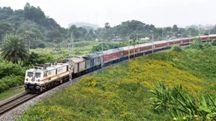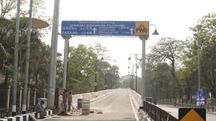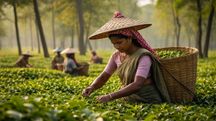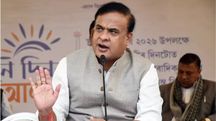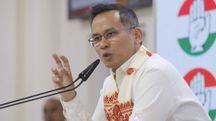The politics behind Himanta Biswa Sarma's love for Assam's 'indigenous' Muslims
Assam’s BJP-led government under Himanta Biswa Sarma has stirred up a new controversy with its granting of ‘indigenous’ status to 5 Muslim communities – the Goriyas, the Moriyas, the Jolhas, the Deshis, and the Syeds.
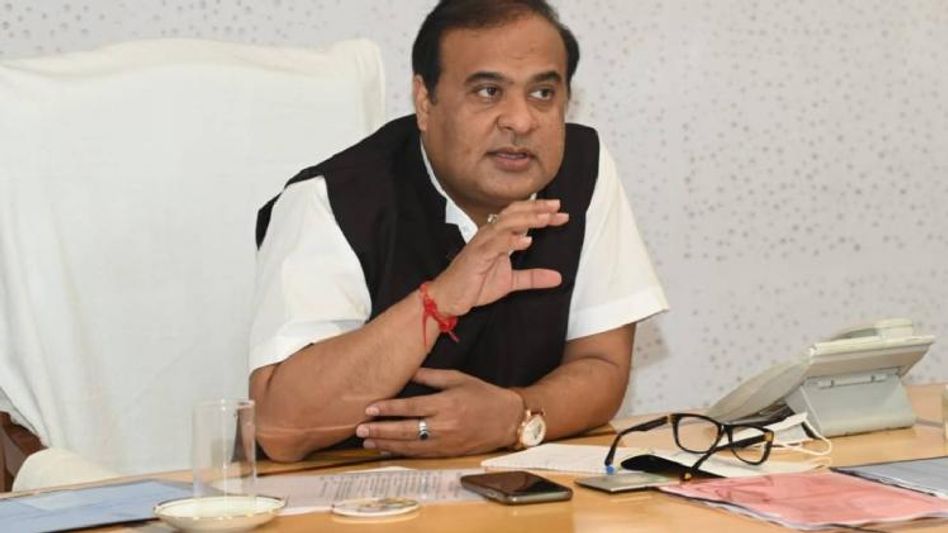 The politics behind Himanta Biswa Sarma's love for Assam's 'indigenous' Muslim
The politics behind Himanta Biswa Sarma's love for Assam's 'indigenous' MuslimAssam’s BJP-led government under Himanta Biswa Sarma has stirred up a new controversy with its granting of ‘indigenous’ status to 5 Muslim communities – the Goriyas, the Moriyas, the Jolhas, the Deshis, and the Syeds.
Assam’s Cabinet during its latest sitting on July 5 approved the “protection of interests of indigenous Muslims” in line with the recommendation of 7 sub-groups committees and headed by the state government.
The announcement sparked a massive controversy as a definition of “Assamese people” or “indigenous” is yet to be officially made – almost 37 years after signing of the Assam Accord (1985).
Making a distinction between the Muslims who migrated to Assam from neighbouring countries and those who have been living on these lands for a considerably longer time, Biswa Sarma has said: “Several Muslim communities have waged a long battle to preserve their culture. Recognizing their struggle, the Assam government has decided to recognize them as indigenous Muslims.”
Biswa Sarma, has said there is no need for the definition of “indigenous” in Assam.
“Ahom, Kachari, Moran, Motok – these are the indigenous communities. Why do we need a definition?”, he asked, adding: “We need a definition for laws and constitutional protection, but we are complicating the situation by asking for the definition of indigenous. If we exclude one community, we are all indigenous. I am simplifying that.”
According to certain estimates, there are 14 million Muslims in the state, of which 10 million are of Bengali origin, and rest are Indian origin indigenous Assamese.
Opposition parties have pounced on the BJP over granting of “indigenous” status to the communities.
Congress MLA Debabrata Saikia has claimed that it is an attempt by the ruling party to “divide the society into pieces”, while adding that the communities in question have been an integral part of Assamese society for ages.
“Nobody ever questioned whether noted litterateur Syed Abdul Malik was Assamese. Moreover, the government is yet to define who is an Assamese and who is an indigenous person,” Saikia pointed out.
Hafiz Rashid Choudhary, working president of the Assam Civil Society, opined that nobody stands to benefit from this decision.
“These communities are already considered indigenous. Nobody is disputing their indigenous status. We will be happy if they are given reservations. However, if you are giving them a special status without giving any privileges, that is no good at all. For them to get any benefit whatsoever, the Constitution will have to be amended. This seems like a political gimmick that seeks to divert attention from other issues.”
Meanwhile, Biswa Sarma has promised that in the coming days, his government will seek to promote the socio-economic status of the 5 ‘indigenous’ Muslim communities.
Although almost 37 years have passed since the signing of the historic ‘Assam Accord’, we are no closer to finding out who qualifies as “indigenous” under the treatise’s Clause 6.
A high-level committee, headed by retired High Court Justice Biplab Kumar Sharma, was tasked with providing recommendations to implement Clause 6, which states: "Constitutional, legislative and administrative safeguards, as may be appropriate, shall be provided to protect, preserve and promote the cultural, social, linguistic identity and heritage of the Assamese people."
The high-level committee recommended that any citizen or descendants of India - Assamese communities, indigenous tribal communities of Assam, other indigenous communities of India and other citizens - residing in Assam on or before January 1, 1951, could be included.
However, the report on Clause 6 of the Assam Accord is still "under examination" by the state.
Copyright©2026 Living Media India Limited. For reprint rights: Syndications Today
